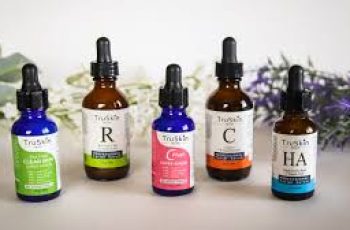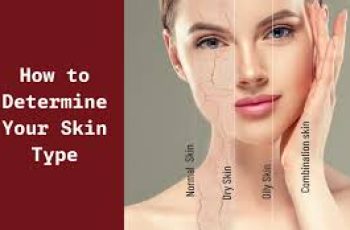
The Ultimate Guide to Choosing the Best Skin Cleanser for Your Skin Type and Condition
Selecting the right cleanser is one of the most crucial steps in building a successful skincare routine.
However, most people make the mistake of basing their cleanser choice on overly simplistic categories such as “oily” or “dry” skin.
In reality, your skin type is more nuanced, and factors like sensitivity, acne-proneness, presence of conditions such as rosacea, eczema, or melasma, and even the other products in your regimen should all influence which cleanser you choose.
In fact, studies have shown that up to 80% of individuals incorrectly identify their own skin type, leading them to purchase and use the wrong products — especially cleansers.
This comprehensive guide breaks down the best types of facial cleansers for every skin type and common skin concern.
Whether you have oily skin with acne, dry skin with rosacea, or combination skin that changes with the seasons, you’ll find tailored recommendations here to help you maintain a healthy skin barrier and achieve your skincare goals.
Why Cleansers Matter More Than You Think
Cleansers do more than just remove dirt and makeup. They are responsible for preparing your skin to absorb serums, moisturizers, and treatments more effectively.
The wrong cleanser can compromise your skin barrier, cause dehydration, or make conditions like acne and sensitivity worse.
Conversely, using the right cleanser sets the foundation for your entire skincare routine — improving product penetration, minimizing irritation, and supporting the efficacy of treatments.
How to Choose the Right Cleanser
To make the best decision, start by identifying your exact skin type using a scientific skin type quiz such as the one based on the Baumann Skin Type® System, which classifies skin into 16 unique profiles.
These profiles consider oil production, sensitivity, pigmentation, and wrinkle propensity — providing a much more accurate picture than generic labels like “normal” or “dry.”
Once you’ve identified your skin type, consider the following:
What products follow your cleanser in your routine?
Are you dealing with any skin conditions (like acne, rosacea, or melasma)?
Do you have brand, ingredient, or budget preferences?
What climate or season are you currently experiencing?
With that in mind, let’s break down the best cleansers by skin type and concern.
Best Cleansers for Dry Skin
Dry skin requires a gentle, hydrating cleanser that won’t strip away essential oils.
Look for creamy or lotion-based cleansers rich in fatty acids, ceramides, and hydrating agents like glycerin or hyaluronic acid. These ingredients help replenish moisture and support a healthy skin barrier.
Top Recommendations:
Zerafite Creamy Cleanser
Excellent for both the face and body, this ultra-hydrating cleanser restores the skin’s lipid layer using essential fatty acids.
It’s a top pick for eczema-prone skin and even works as a gentle shaving cream.
La Roche-Posay Toleriane Hydrating Gentle Cleanser
A favorite for extremely sensitive or allergy-prone skin. While it’s gentle enough for morning use, it may not fully remove heavy sunscreen or makeup.
PCA Skin Creamy Cleanser
Designed for those who want clean skin without tightness. This is a light, moisturizing option ideal for dry skin types who work out or wash their face in the morning.
Best Cleansers for Sensitive Skin
Sensitive skin is not a one-size-fits-all category. It includes subtypes like rosacea, acne-prone sensitivity, stinging and burning, and allergic contact dermatitis.
The best cleansers for these skin types are gentle, non-foaming, and hypoallergenic, often with calming agents such as chamomile, niacinamide, or fatty acids.
Best for All Sensitivity Types:
VMV Hypoallergenics Creammmy Cleansing Milk
Free of over 100 common allergens, this dermatologist-developed cleanser is perfect for people with frequent skin reactions or allergies.
SENTÉ Daily Soothing Cleanser
A soothing, hydration-focused formula that’s gentle enough for those with rosacea and eczema.
Best Cleansers for Acne-Prone Skin
Acne-prone skin benefits from ingredients like salicylic acid, benzoyl peroxide, and alpha hydroxy acids (AHAs).
But these can be drying, so the formulation must suit your skin’s tolerance level — especially if you’re also using retinoids.
Top Picks for Oily, Acne-Prone Skin:
Nolio Salicylic Acid Cleanser
This anti-inflammatory, pH-balanced cleanser clears pores and helps reduce oil and acne inflammation.
La Roche-Posay Effaclar Medicated Gel Cleanser
Contains 2% salicylic acid and is fragrance-free, making it suitable for sensitive, oily, and acne-prone skin.
SkinCeuticals Clarifying Exfoliating Cleanser
Blends salicylic, glycolic, and lactic acids with gentle physical exfoliants. Great for tackling both breakouts and post-acne pigmentation.
Replenix Benzoyl Peroxide Acne Wash (5% & 10%)
Potent yet effective — use the 5% version if you’re starting out or have sensitive skin, and the 10% version for stubborn, oily acne. Not recommended for dry or rosacea-prone skin.
PCA Skin BPO 5 Percent Cleanser
Includes aloe and glycerin to counteract the drying effects of benzoyl peroxide.
Special Tips:
If your skin is dry and acne-prone, avoid aggressive cleansers. Start with gentle, non-foaming options and slowly introduce actives like retinoids.
Over time, you can graduate to hydroxy acid-based cleansers once your skin can tolerate them.
Best Cleansers for Rosacea
Rosacea requires anti-inflammatory, calming ingredients and a fragrance-free, low-irritation formula. Exfoliating agents and harsh surfactants should be avoided.
Best Options:
Zerafite Creamy Cleanser
Calms inflammation with fatty acids and strengthens the skin barrier.
VMV Hypoallergenics Red Better Cleansing Cream
Designed specifically to reduce redness and inflammation in rosacea and allergy-prone skin types.
La Roche-Posay Hydrating Gentle Soap-Free Cleanser
This soothing cleanser is allergy-tested and non-comedogenic, making it a solid choice for rosacea and eczema.
Best Calming Cleansers for Skin Allergies and Stinging
For skin prone to stinging, burning, or allergic reactions, opt for non-acidic, fragrance-free cleansers that replenish the skin’s lipids and have a neutral or slightly acidic pH.
Best Choices:
VMV Hypoallergenics Superskin Cleansing Milk
Great for those with diagnosed skin allergies or sensitive skin reacting to other products.
Zerafite Creamy Cleanser
Particularly useful when skin is dry and reactive. Excellent for eczema and post-shave calming.
Best Cleansers for Combination Skin
Combination skin fluctuates — often dry in some areas and oily in others. Gentle foaming gels or mild cream-gel hybrids are ideal.
Recommended Cleansers:
Medature Plantract Cleansing Gel
This mild foaming cleanser removes excess oil without damaging the skin barrier. Can double as a lash cleanser.
SkinMedica Sensitive Skin Cleanser
Botanical extracts like chamomile soothe dry patches while cleansing gently.
Best Cleansers for Oily Skin
Oily skin needs foaming or gel-based cleansers with ingredients that absorb excess oil, reduce shine, and remove buildup from sunscreen and makeup.
Top Picks:
Nolio Foaming Cleanser
A deeply cleansing option that doesn’t clog pores or over-dry the skin.
La Roche-Posay Effaclar Foaming Gel
Affordable and effective. Removes oil, makeup, and sunscreen without disrupting the skin barrier.
SkinCeuticals Purifying Cleanser
Contains glycolic acid for gentle exfoliation and deep cleansing.
Best Cleansers for Dull Skin
Dull skin often results from poor exfoliation. Choose exfoliating cleansers with hydroxy acids like glycolic, lactic, or salicylic acid to remove dead skin cells and brighten the complexion.
Best Picks:
Essopi Glycolic 10% Cleanser
This low-pH glycolic acid cleanser is ideal for prepping the skin for active treatments like vitamin C.
PCA Skin Facial Wash
Uses lactic acid and aloe to gently renew skin, suitable even for sensitive types.
SkinMedica AHA/BHA Cleanser
Combines alpha and beta hydroxy acids for a radiance boost. Not suitable for sensitive skin.
SkinCeuticals LHA Cleansing Gel
Best for acne-prone skin that also suffers from dullness.
Best Cleansers for Melasma
Melasma requires consistent exfoliation and skin preparation. Low-pH hydroxy acid cleansers are ideal, as they enhance the penetration of melasma treatments like tyrosinase inhibitors and vitamin C serums.
Best Post-Procedure Cleansers
For skin healing from chemical peels, laser, or microneedling, use antibacterial, non-irritating cleansers.
Recommendations:
GCP Pre- and Post-Procedure Cleanser
Contains silver to prevent infection and calm the skin.
SENTÉ Daily Soothing Cleanser
Great for post-peel recovery. Soothes and hydrates freshly treated skin.
Cleansers for Men
Men’s skin can be oily, thick, or sensitive — just like women’s. The only real differences are usually in packaging and scent. Men should still choose based on skin type and concern, not marketing.
Can You Use a Cleanser as Shaving Cream?
Yes — if you have sensitive or dry skin, using a creamy, hydrating cleanser as a shaving cream is a great alternative.
It softens hair and leaves behind moisturizing lipids. Let it sit on your skin in a warm shower before shaving for best results.
Best Cleansers That Don’t Affect Eyelash Extensions
Oil-based cleansers can loosen lash adhesives. For lash-safe cleansing, use gel-based or non-lipid cleansers:
Medature Plantract Cleansing Gel
La Roche-Posay Toleriane Hydrating Gel
Final Thoughts
Choosing the right cleanser is foundational to any skincare routine. It prepares your skin, protects your barrier, and enhances every step that follows.
Take a few minutes to find your exact skin type using a professional skin type system and select your cleanser accordingly — it will save you time, money, and frustration in the long run.
Let us help you discover the best cleanser tailored to your Baumann Skin Type® — and transform your skincare from guesswork to science-based results.


